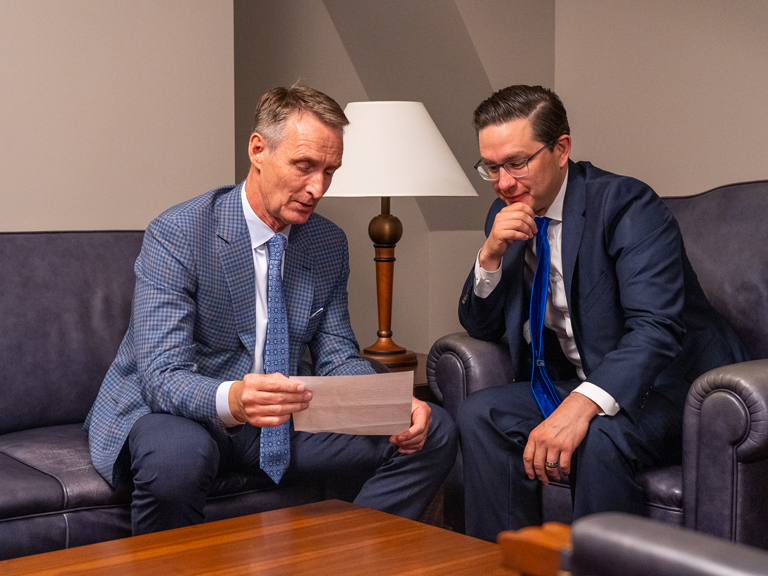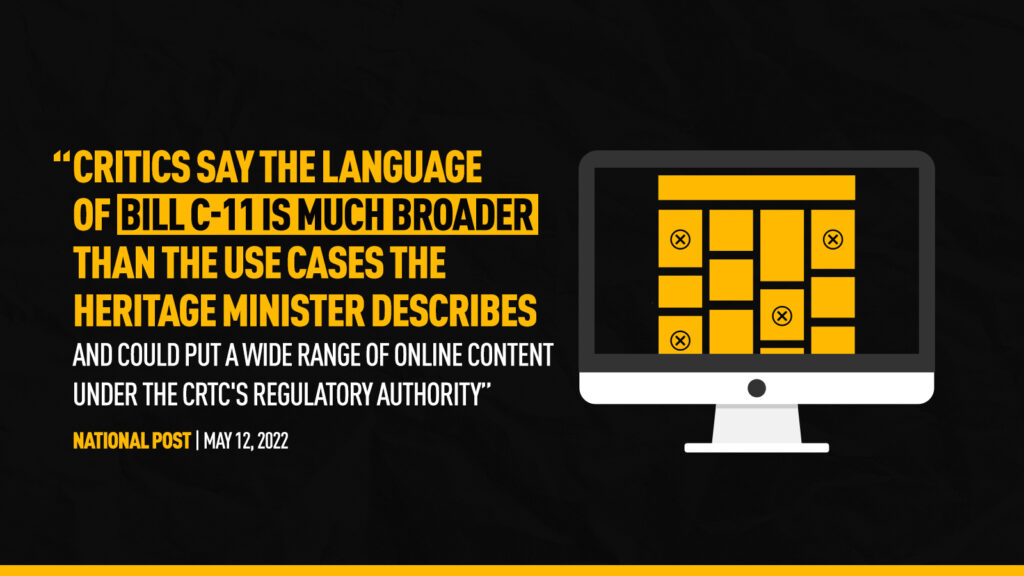E-Newsletter
September 29, 2022

Parliamentarians are just over one week back into our fall session. I’ve had a busy summer as the Conservative Shadow Minister for Natural Resources, which included several contentious items, including:
- New Clean Fuel Standard regulations
- New input on the Canadian government’s approach to carbon capture, utilization and storage
- (recall that I proposed a bill on this measure in the last Parliament)
- The government is still well behind on any implementation, and falls further behind in addressing any decarbonization efforts, particularly because of the advancement of more robust measures in the U.S. Inflation Reduction Act. The legislation this government is pursuing now is so far behind, it is irrelevant.
- Sanctions confusion with Russia on gas turbines – for which I stated my clear opposition to any sanctions relief.
- Convincing Europeans that Canada could be a reliable partner in delivery of Liquefied Natural Gas
- Questioning the viability of any ‘green hydrogen’ exports
- Punching against the stonewall of silence for information from the government on the renewed regulatory delays in finishing the construction of the TransMountain Pipeline expansion, and
- Addressing the ‘Discussion Document’ on emissions reductions specifically from the oil and gas industry (more on that below).
Those are the government’s multi-pronged approaches to weakening our oil and gas industry, and its contributions to the country, and the advancements for the world’s environment.
Make no mistake, the same regulatory hurdles our energy industry faces is being experienced by our mining industry – where projects are experiencing repetitive delays in approval, and even reversals.
For years, we’ve know the next target would be our fertilizer industry – and that leads directly to our agricultural output. The government clearly showed its intent about the future of these industries in Canada.
No doubt, each of these industries has a carbon footprint – as does all economic activity. Our approach has been to minimize this effect, while recognizing the irreplaceable benefit to the world of energy and food output. We also need to analyze the effect of replacing our output with that which will fill the void that we create. The world is reeling from the results of ignoring the key contribution of energy as a part of international security, and the effects of reducing food production. And the escalating costs of everything is the first indication that the efforts to do away with inexpensive energy and food for the world will have massive consequences to everyone – but particularly for those least able to adapt to escalating prices. The poorest – here and around the world – will suffer badly.
I think it’s our job to avoid those outcomes.

Greenhouse Gas Emissions Cap for the Oil and Gas Industry
In July, a discussion paper was issued by the Environment Minister proposing a limit on emissions, specifically from Canada’s oil and gas industry. I’ve received significant input on the discussion paper, which outlined two options:
- A more stringent output based pricing system (to replace provincial programs
like Alberta’s TIER program); and - A cap and trade system.
Both options would be a way for the federal government to regulate what has been historically and constitutionally regulated by the provinces.
I’ve received significant input on the paper from affected parties. It is a complex matter, and I have written the Minister, asking him to consider extending the deadline for input, as the September 30th deadline would limit the serious input required for a proposal that could cut Canada’s oil and gas production in half in the medium term. Obviously, such a change would affect much – our economy – locally and across Canada; the escalating inflationary impacts of higher costs to be borne throughout our economy; the removal of energy security for home, businesses, and our trade partners; and, the worst outcome possible – replacement of Canadian production with resources from less transparent or accountable foreign suppliers, who demonstrate much lower environmental standards than Canadian industry.
I’ve been providing the government with this input for three years now – and they refuse to acknowledge or address the misdirection of their ideological approach to Canadian industry. Meanwhile, oil and gas production increases in almost every producing country, and new fields are being exploited offshore in South America.
There’s more. The “Discussion Document” indicated it was informed by recommendations from the Standing Committee on Natural Resources – on which I am a very active participant.
Let me state quite clearly that this committee has sent the government NO recommendations on this matter. Hence, the “Discussion Document” is more than an overstep; it is predicated on misinformation. Unfortunately, I find that this is becoming Standard Operating Procedure for the government.
Hand Picking Supportive Witnesses at the Natural Resources Committee
My Conservative colleagues and I have been very effective on the Natural Resources committee – contributing input and calling witnesses that provide some clarity on the government’s misdirection on their approach to development of our natural resources.
In response to our work illustrating the good work our industry is doing, particularly in leading the world in emissions reduction, members of the NDP-Liberal coalition decided to hear only witnesses called by their two parties.
This defies parliamentary norms – where the witnesses that are heard at our committees are historically called in proportion to our seats in the House of Commons. Committee reports are largely written based on witness input, and on our abilities to cross-examine witnesses. Going forward, it is clear that the governing NDP-Liberal alliance do not want to even hear input from opposing views to their initiatives.
This is minimizing debate further. It is leading us down a rabbit-hole where we won’t recognize to what point the democracy that Canada has practiced for decades is no longer functional nor accountable to Canadians.
The government doesn’t want to hear voices that contradict their direction – only those voices that agree with them, and many of those voices at committee are funded by government. This is guaranteed to make Canadians more frustrated with government decisions, and confirms that these decisions are remote from the reality that Canadians face.
Fresh, New Leadership
On an important note, the big news is that my party has a new leader, Pierre Poilievre, originally from Calgary! Pierre received a resounding 68% first ballot support in our leadership selection, and our party sold vastly more memberships than has ever been done – so his resonance with our party and Canadians who became new party members is quite clear. I’ve worked with Pierre over the past three years, and I will attest that he is one of the smartest people in the House of Commons. He also agrees with my positions on the fiscal issues that we need to address in government. And I am confident he is a strong supporter of Canada’s resource industry.

Bill C-11: An Indefensible Intrusion on Canadian Freedom of Expression
One piece of legislation that really ought to be blocked this fall is Bill C-11. Here’s a detailed look at all that is wrong with this legislation:
Bill C-11 the Online Streaming Act, known colloquially as the Internet Control Bill, passed in the House of Commons in June, but only because the Liberal/NDP coalition pulled out all of the stops to restrict debate. They even passed dozens of clauses without even reading them into the minutes.
It is now before the Senate, where it is being properly scrutinized. The Senate needs to send this back to the House with numerous amendments.
The stated aim of the bill is to extend the Canadian Radio-television and Telecommunications Commission‘s (CRTC) current authority over broadcasters to include all material posted online including podcasts, video and anything audio-visual. The Minister says it is mainly aimed at the big aggregators, like YouTube and Meta. Is that correct?
One of the biggest problems of the Bill is that its proponents can’t even agree on what it says. The Minister of Heritage said that it would not allow the CRTC to regulate user-generated content (UGC), but the President of the CRTC, Ian Scott, said more than once that yes, he does have the power to do that.
Why is the CRTC even being considered as the content-cop for postings by ordinary Canadian users?
In theory, the bill is supposed to give control to the CRTC for commercial users, but that definition includes anybody who earns a buck directly or indirectly from posting stuff on the internet. Maybe it is a small business posting a small ad; maybe it is a home-based graphic designer creating memes or making videos that connect viewers to a website; maybe it is a charity using the internet to advertise their fundraiser. Maybe those are commercial users and maybe not. The bill isn’t really clear about that.
The vast majority of material posted to platforms like Tik Tok or YouTube meets at least one of the criteria that will require user-generated content to be subject to CRTC oversight, directives and, yes, taxes.
The bill also has a “discoverability” clause which enables the CRTC to tell online platforms to manipulate their algorithms to prioritize Canadian content in feeds and searches. Whether you are looking for Canadian content or something else, the algorithm will list government approved content first. Many content creators oppose this provision because it means they will likely get LESS “discoverability” outside of Canada.
The definition of what is Canadian content is also ill defined. For example, the broadcast of Margaret Atwood’s The Handmaid’s Tale – written by a Canadian, filmed in Toronto – failed to pass muster as Canadian.
Everyday Canadian content creators who don’t qualify for a CanCon license will be pushed to the bottom of the feeds and searches, impacting their number of views and in some cases, their ability to earn a living from their work.
CanCon licensing is expected to bring in $830 million annually by 2023.
When legislation is not adequately reviewed by Parliament and its committees, there may be unintended consequences. Already tech-savvy consumer-creators are talking about using VPNs to spoof their location and evade the legislation. For large commercial platforms, the legislation requires registration and data disclosures, quite possibly leading many services to block Canada altogether, reducing choice and increasing consumer cost.
If you are interested in the implications of Bill C-11, you may wish to follow University of Ottawa law professor Michael Geist, who has taken a deep and impartial interest in the flaws of this legislation. Start here: https://www.michaelgeist.ca/tech-law-topics/acta/

SUMMER FESTIVALS
I was able to meet literally thousands of constituents at the many festivals and gatherings in Calgary Centre this summer. This is an invaluable chance for me to hear what you are thinking, and get your advice on my performance and priorities.

Doorknocking remains one of the best ways to hear from constituents. This door was in Garrison Woods.

The Chinatown Street Festival.

Marda Gras.

The Dragon Boats

Muslim Heritage Day.

Pride parade and festivities.
Please get in touch if there’s anything my office can do for you.
Greg McLean, M.P.
Calgary Centre
403-244-1880
Greg.McLean@parl.gc.ca
GregMcLeanMP.ca